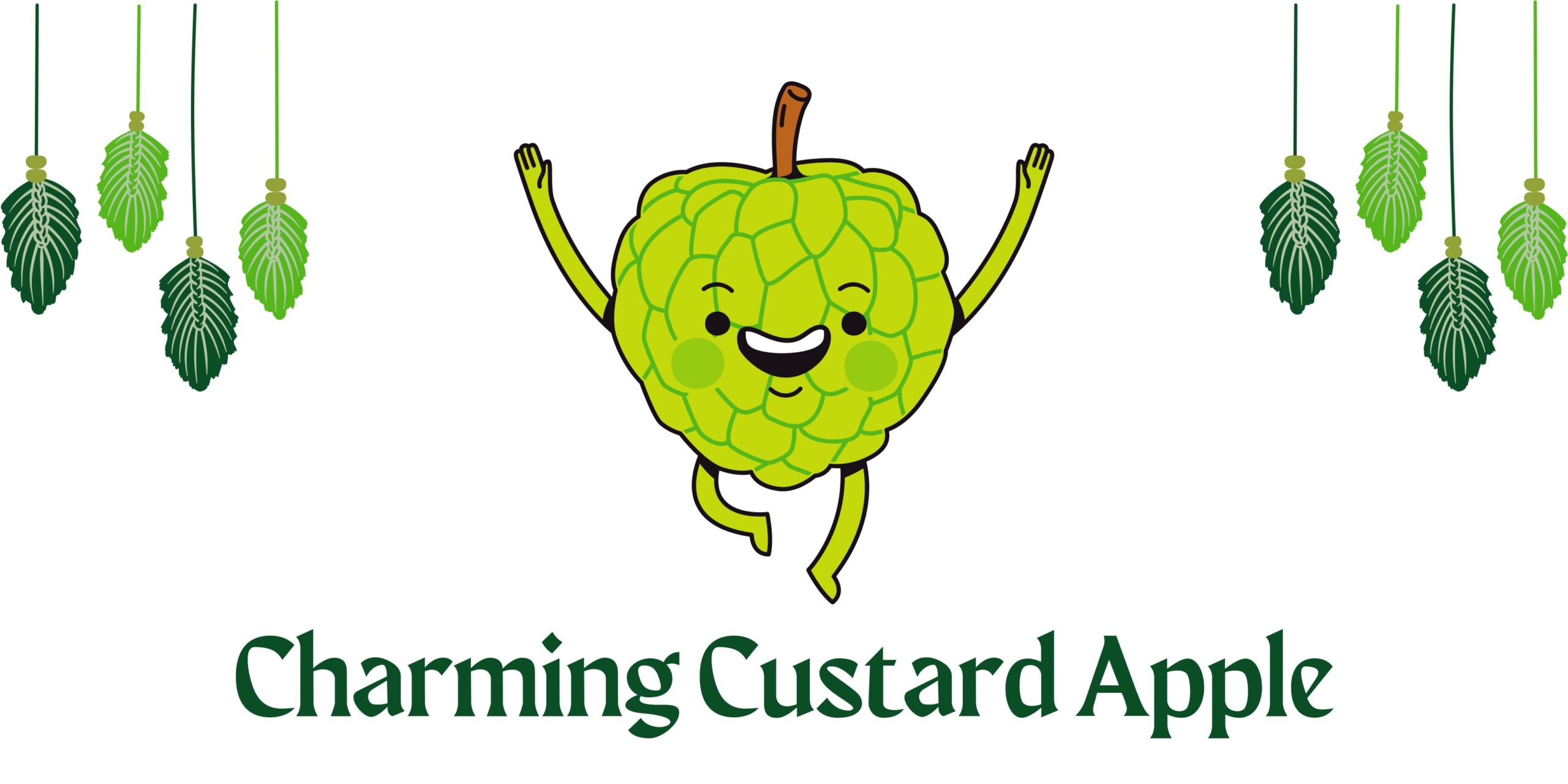
Charming Custard Apple!
The benefits of custard apples are described in detail in this post. The custard apple is a green, cone-shaped fruit with a leathery skin and a sweet, creamy inside. It is considered to have originated in the Asiatic and South American Andes ranges. It grows in tropical areas with high altitudes.
You usually eat a custard apple with a spoon, and it’s traditionally served cold, like custard. The taste of a custard apple is sweet, like the taste of bananas and pineapples. This unique fruit is full of vitamins, fibre, and minerals. It may help your immune system, reduce inflammation, and improve the health of your eyes and heart.
In Tamil and Malayalam, the custard apple is called “Seetha Pazham.” In Hindi and Telugu, it is called “Sitaphal,” and in Punjab, it is called “Sharifa.” It is also called cherimoya, sugar apple, and sweetsop, among other names. These delectable fruit’s various types are known scientifically as “Annona cherimola,” “Annona squamosa,” and “Annona reticulate.”
Uses of custard apples
Custard apples are very good for the heart because they have a lot of omega-6 fatty acids and heart-healthy unsaturated fats. On top of that, these tasty fruits have been shown to lower blood pressure.
Ensuring smooth digestion is one of the benefits of custard apples. Custard apples are full of B vitamins, which help the metabolism and ensure that food is turned into energy as efficiently as possible. Also, there are a lot of healthy fibres in this delicious winter bounty. These fibres fill you up, stop you from getting early and unhealthy cravings, let nutrients pass through without getting stuck, and speed up digestion.
Several studies in the scientific community have shown that the “acetogenin” chemicals in custard apples can stop cancer from spreading. So, including custard apples in your diet regularly is an excellent way to treat inflammation and tumours.
Dopamine and Serotonin are neurotransmitters that are made when vitamin B6 is present. This vitamin is vital for controlling mood. A lack of this vitamin could be a cause of mood disorders. Eating foods like custard apples may help lower your risk of depression linked to vitamin B6 deficiency by increasing levels of this crucial nutrient.
Advantages of custard apples
Vitamin B6, which is found naturally in custard apples, is known to make the brain work faster. So, it helps maintain healthy nerve signalling, improve focus, lessen feelings of depression, and make people feel better. So, custard apple aid in improving brain activity.
Enhancing eye health is included in the benefits of custard apples. Sitaphal, also known as custard apple, has a lot of vitamin A and the antioxidant carotenoids zeaxanthin and lutein. These increase blood flow to the optic nerve and other parts of the visual system. This improves vision and lowers the risk of getting age-related macular degeneration (AMD), cataracts, and glaucoma later in life.
The custard apple is very calorie-dense and gives the body the simple sugars glucose and fructose, which are needed to provide the body with the energy it needs. It also helps with fatigue and treats anaemia because it has much iron.
Added advantages of custard apples
Custard apples are a fantastic resource of polyphenols that are antioxidants that support a healthy body with a low glycemic index. Because of this, the body makes a lot more insulin and absorbs a lot more glucose, which helps keep diabetes under control.
Augmenting the immune system is one of the benefits of custard apples. Custard apples are full of the powerful antioxidant vitamin C, which protects the body from harmful bacteria and diseases from the outside. It also flushes out toxins and free radicals from the inside.
Custard apples are a treasure trove of nutrients that are good for the skin because they have vitamin A, vitamin B5, vitamin C, copper, and zinc. Acne, allergies, abscesses, and other skin problems can be treated well when these things work together.
The custard apple tree is drought-resistant, growing even in harsh temperatures and rocky soils. This, along with its naturally nutritious parts and other health benefits, makes it a leader in the fight against malnutrition and mineral shortages.